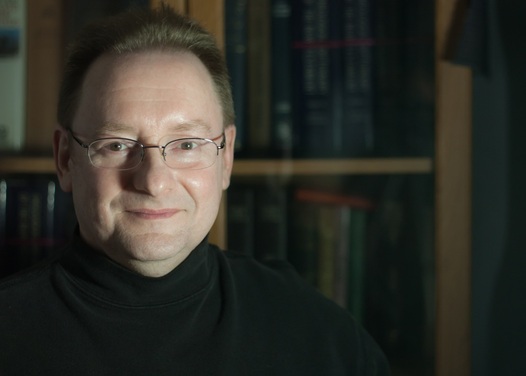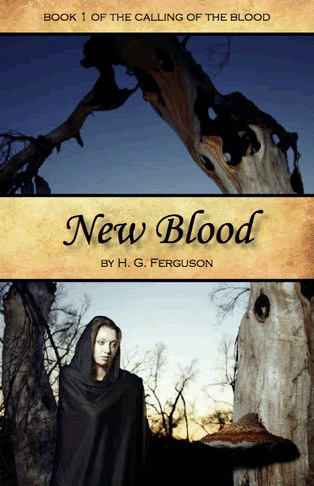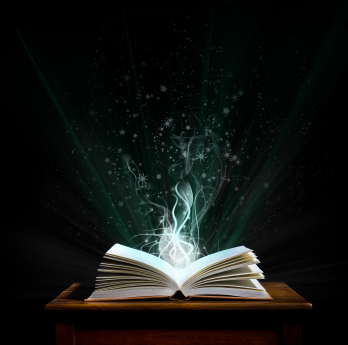
You can learn more about Harold on his publisher's author page, watch his trailer, and of course, buy his book on Amazon and B&N. Read on for more fascinating explanation of a fascinating writer!

Actually, I am much more at home, historically speaking, in the ancient world, ancient history and warfare being a long-held interest of mine. I set the story at the outbreak of the French and Indian War because I felt the Lord desired it to be placed there, and because this is a war about which most American Christians – and Americans in general – know very little, particularly the horrific situation in western Pennsylvania. The F&I War was, in almost every way, the determinant of the future of this country and not the American Revolution. Had but a thing or two favored Les Frances, you and I would be speaking a much different language today and the United States as we have known it would not exist. I also chose this period because of some pretty cool source material I discovered at my local Phoenix library – from French and Indian War western Pennsylvania! That was the Hand of God.
Creating the “world” presented quite a challenge, particularly with dialogue. You can’t go total period or it sounds stilted and well nigh gibberish, but modernize it too much and you sever all ties to reality. 18th Century people did not sound like they just stepped out of a coffeehouse with small chirping mechanical devices in their hands. Striking a happy medium – sounding appropriately period but not archaic – I hope I accomplished. I also faced quite a few cultural/religious challenges with both the Puritan diehards and the Native Americans. I used as much primary source material as I could find in an effort to be fair to both sides. My chief influences and inspirations were the autobiography of Mary Jemison, whose real-life captivity by the Seneca in the same place and era as New Blood, adoption into the tribe and subsequent marriage to a Native husband mirror Rebecca’s own, and the 1992 masterpiece film The Last of the Mohicans. I must have watched that movie 25 times to immerse myself into the look of the times, partly because I am visual and partly because the production design was dead on. I wanted to make the “world” ring authentic and true, so that Rebecca herself would also ring authentic and true. If readers can accept the “world,” then I hope they will accept her as well.
I framed the story with a modern narrator who pops in and out at times – Rebecca’s vampiric granddaughter and internet hottie Roxanne – because certain elements of the story demanded it, particularly at the beginning. Roxanne, also a vampire, understands in modern scientific and medical terms what Rebecca could not. Roxanne’s comments set the stage and explicate certain points, though not obtrusively, in the narrative in between certain chapters. This is so the reader can understand what Rebecca is through the eyes of her modern-day descendant who also copes with her own vampirism as best she can. More than one reader has told me how much they appreciate Roxanne’s perspectives, though I did not specifically intend to appeal to readers through her.
My target audience? Anyone who loves vampires, historical adventure, historical romance, stories outside the box. Waaay out.
I think storytellers have incorporated vampires as long as there have been stories. What made you want to tackle such a crowded field?
Excellent question. I wanted to do a vampire story which has never been done before, and I have succeeded. If that sounds boastful, read the book. This is like no vampire story anyone’s ever read, because my vampire is a dedicated Christian washed in the Blood of the Lamb and trying her best to please Him through her life in spite of what she is. I also wanted to return these kinds of stories to their original biblical and Christian worldview. Today’s “vampires” are more like superhuman gods and goddesses where every single definition of the word vampire is smashed into miniscule shards. Being a “vampire” is presented as “cool” and “empowering.” There’s no “down side” to being one. Don’t you want to cross over, embrace the darkness and be a vampire too? Ask Rebecca how she feels about being a vampire and you’ll get a very different answer. It’s not fun. It’s not cool. It’s an affliction she must live and cope with every single day of her life. There’s a scene in the story where Rebecca is abducted and exposed to sunlight. She doesn’t sparkle. She sizzles.
First and foremost, Rebecca is a human being. That’s right. Now she’s a very unique and rare human being to be sure, but at heart she is the same as you and I. That means she’s sinful. That means she needs a Savior. And that means Jesus Christ died on the Cross for her sins too. And that He loves her unconditionally with an Everlasting Love. White Hawk, her Mohawk husband, is a symbol of that very thing. He loves Night Song unconditionally, vampire and all. So does God.
Of course, here the “vampire” is a metaphor for sin. We all struggle with what we are, sinners saved by the unmerited favor and Grace of God revealed to us through Jesus Christ. But in spite of ourselves, through that Grace, God loves us, redeems us, restores us and uses us to the praise of His Glory. Just like Rebecca.
Most of the evil in the tale is presented as human villainy. I have good colonists and bad colonists. I have good Natives and bad Natives. The enemy of Rebecca’s soul however sometimes comes against her, as he does us, with accusations, lies, spiritual evil. Rebecca even undergoes a vision or two and some dreams I leave the reader to judge as to their source – her own troubled mind and heart or that other place.
Your imprint, OtherSheep, is described as "a little bit different." Do you tell people that you've written a Christian vampire story? What is their reaction?
Ohhhhhhhhhh boyyyyyyyyyyy. Like Rebecca herself, I get two fairly invariable reactions from folks when they learn what I’ve written. They either welcome Rebecca with open arms and love her or look at her as if she’s sprouted seven heads and ten horns sporting the name of Blasphemy. To some, the very idea of a “Christian vampire” is at best a misnomer and at worst an abomination. But by removing the demonic and making her “curse” a medical, genetic abnormality responsible for all vampire folklore in the world, I write of a wounded woman standing before God, a human being redeemed by the Agnus Dei through Holy Crux Fidelis, not an undead and unholy creature of the night, without hope and damned to an eternity forever apart from God.
I also sometimes get “flak” from the occasional reader who doesn’t understand Rebecca’s Christian background, or the time and place. This is the French and Indian War, people, not an Amish courtship. That being said, I think for a few readers Rebecca is too deeply flawed for their taste, which is fine, but aren’t we all deeply flawed? For we all have sinned and are falling short of the glory of God. Hence all the more need for repentance and confession, like Rebecca. No one is more conscious of being a vampire, a sinner or a Christian saved by Grace than my angsty Franciscan vampette. For this reason Rebecca’s plight resonates with almost everyone who’s read the book and contacted me.
Trying to finish Book 2, as yet untitled. It opens in August of 1757, two years after New Blood, and all is not well in western Pennsylvania or with Rebecca. The conflict in the “natural” world continues little unabated, but the spiritual and emotional conflict ravaging Rebecca’s soul threatens to destroy her. New sorrows, new challenges, new journeys, new enemies and old friends, questions from the first book left flapping in the wind now answered with tragic and gleeful, hellish mockery – Rebecca will face three enemies, The Beast, The False Prophet and The Dragon. Whether she triumphs or not will depend on her response to her Indian father’s admonition, “Remember what you are!” For she will learn her only hope is the Power in the Blood!
Is there anything else you'd like to tell us about your writing and yourself?
Personally, I dislike the term “speculative fiction,” which is as useful as the phrase “I can neither confirm nor deny.” I do not write anything speculative. It is horror, it is historical romance, it is historical adventure, a blend as unique as the central character herself. To me the term “speculative” implies “anything goes.” I’ve seen some things written under the banner of “Christian speculative fiction” presenting horrible views of God as a weak, almost pathetic being barely able, if at all, to do anything without our help or break the devil’s power. But our God is the heavens, He does as He pleases. He is the Sovereign Lord, the Ruler of All Things, whom the Native Americans of the Northeast identified to the missionaries as “The Master of Life,” not some puny whining deity wringing his hands in woe because people won’t help him.
I make it my aim in my stories to always go outside the box but NEVER outside the lines. I want my stories to be original, creative, not derived from other writers’ sources, i.e., outside the box. Which is why you won’t find another vampire tale like New Blood anywhere. Period. Always outside the box. But NEVER outside the lines of scripture. I do not speculate upon what God has chosen not to reveal. Rebecca has a near death experience in Book 2, but I don’t “take her to Heaven” because God deliberately doesn’t go into details in His Word about Heaven and I will not speculate upon what God has not chosen to reveal. In this experience Rebecca is given a choice, and her answer will have a profound impact upon her later life. It’s a near death experience, not a death experience. And one which, I feel, does not “cross the lines” but instead magnifies the King of Kings.
Above all I wish New Blood to be a reflection of the Power, the Purpose and the Glory of God as manifested in and through Rebecca’s life. Rebecca will learn two truths, hard as they may be for her to accept: God made no error in allowing Rebecca to be born a vampire, and His unconditional love for her will never fail!
And as Rebecca herself would chant, “Soli Deo Gloria! Gloria in excelsis Deo!”

 RSS Feed
RSS Feed